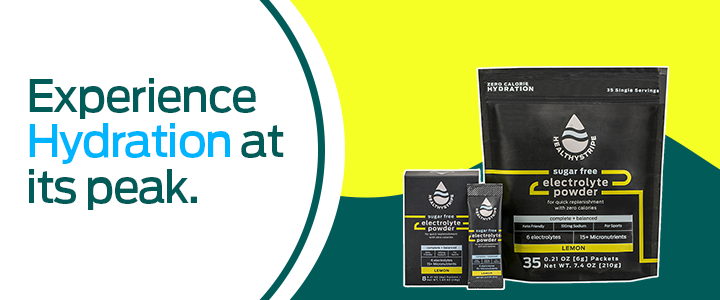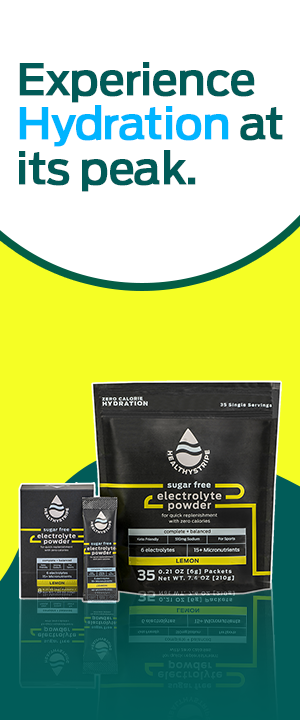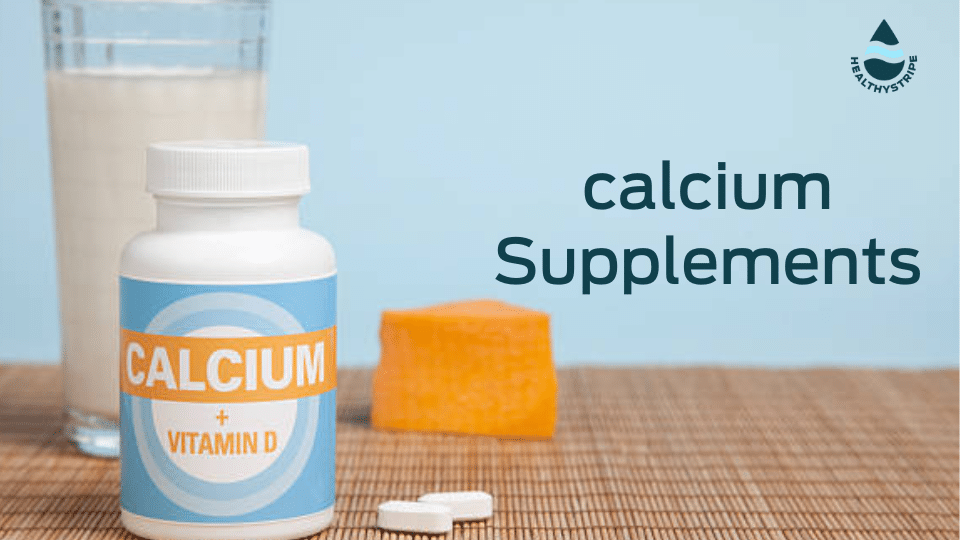Best Vitamins and Minerals to Boost Immunity

In the modern era, we consume a lot of tasty and yummy foods but we get sick often due to weak immunity. This reason is, that our foods lack immune-boosting nutrients to fight off infections. Immune-boosting nutrients include vitamins and minerals.
Vitamins and minerals are essential nutrients that play various physiological functions in the body. The most important function of vitamins is boosting your immune system. Vitamins that boost your immune system include Vitamin A, Vitamin D, Vitamin C, Vitamin E, vitamin B complex, and carotenes. They enhance the production of soldiers of the body called white blood cells (mainly B cells and T cells) to fight off foreign invaders. They play a critical role in initiating innate as well as adaptive immune responses of the body.
This blog lists essential vitamins and minerals, their sources, and natural ways to boost your immunity. Let’s get straight into it without wasting a second!
Vitamins And Minerals That Boost Up Immune System:
Vitamins and minerals that boost the immune system include Vitamin A, D, C, E, and B complex, Zinc, and Selenium. Vitamin E, C, and some members of the vitamin B complex act non-specifically by acting as antioxidants in the body. However, vitamins A and D act directly on the immune system and are considered to be the most important vitamins for the immune system.
Consuming foods rich in vitamins and other nutrients, like eggs, legumes, fruits, yogurt, seafood, nuts, fish, dairy products, liver, leafy green vegetables, and green tea, have a key role in boosting your immune system. If you consume a diet that lacks essential nutrients and vitamins, it is a gateway to various diseases. Your immune system will not work properly, and your body will become susceptible to various pathogens.
Here’s a list of vitamins and minerals to boost your immune system:
1-Vitamin A:
Vitamin A is a fat-soluble vitamin. It is absorbed as retinol from the diet and is metabolized to various metabolites, including retinyl esters, retinol, retinoids, and retinoic acid. These metabolites have a key role in boosting your immune system.
You may wonder how Vitamin A boosts immunity; here is the beneficial role of vitamin A in immunity:
- Retinoic acid kills harmful cells in your body and promotes the growth of white blood cells which are important components of your immunity.
- Retinoic acid promotes Helper T cell differentiation in the gut. Helper T cells are white blood cells that play a critical role in long-term immunity.
- Retinoic acid inhibits the premature death of white blood cells.
- Vitamin A metabolites keep TH1 and TH2 cells balanced. Its deficiency causes TH2 cell deficiency.
- Vitamin A has an important role in the maintenance of epithelial tissue and mucosal membranes that constitute the first line of defense against pathogens.
- Vitamin A has a role in cell differentiation, maturity, and immunological function in your body’s innate (inborn) immunity.
Sources: Vitamin A is present in Eggs, carrots, spinach, leafy green vegetables, nuts, fish, dairy products, liver, and fresh fruits.
Vitamin D:
Vitamin D is also a fat-soluble vitamin, and it acts directly on your immune system. It is directly synthesized by your skin in sunlight. Different forms of Vitamin D act differently on your immune system.
Calcitriol, or 1,25 dihydroxy vitamin D, is an active form of vitamin D. It generates an innate and adaptive immune response. Moreover, it maintains membrane stability, which is the first line of defense against pathogens.
1,25 dihydroxy vitamin D has anti-inflammatory effects, which help fight off infections. Moreover, Vitamin D initiates the differentiation of various cells like macrophages (a type of white blood cell that engulfs microorganisms).
Vitamin D deficiency is associated with various infections and autoimmune diseases like diabetes and multiple sclerosis.
Sources: Eggs, fish, cheese, liver oil, beans, milk, nuts, mushrooms, and tuna are rich in vitamin D.
Vitamin C:
Vitamin C acts non specifically by acting as an antioxidant in the body. It supports innate as well as adaptive immune responses in the body. Antioxidants destroy free radicals. Free radicals are charged ions that destroy your body cells. Vitamins and minerals are protective against these free radicals.
As vitamin C has anti-inflammatory effects, it protects your body from inflammation and cell injury. According to research, vitamin C deficiency is the fourth leading nutrient deficiency in the United States, which leads to various diseases. Consuming a diet rich in Vitamin C can overcome this deficiency.
Sources: Sources of vitamin C include citrus fruits, oranges, broccoli, kiwi fruit, strawberries, and bell peppers.
Also Read: 23 Foods Rich In Vitamin C
Vitamin B Complex:
Vitamin B is important for a healthy balance of the immune system. Among vitamin B are niacin, thiamine, riboflavin, cobalamin, folic acid, and pyridoxine. Different forms of vitamin B complex act as antioxidants. They protect your body from ischemic injury and cardiovascular illness like cardiac failure.
Folic acid and cobalamin (vitamin B12) have an important role in the synthesis of DNA and other nucleotides. They have a role in proteins and antibody production that are a part of your immune system.
Vitamin B5 is involved in the healing process of cuts and wounds. According to a study, a daily intake of 5mg of folic acid boosts immunity.
Sources Of Vitamin B:
Vitamin B is available in various forms. You can fulfill vitamin B requirements by taking vitamin B-rich foods. The following are different sources of vitamin B:
Thiamine: Common sources of thiamine include grains, bread, cereals, pasta, fish, soybeans, legumes, and nuts.
Riboflavin: You can get riboflavin from foods like eggs, meat, oats, spinach, bread, grain products, kidney, and mushrooms.
Niacin: Poultry, legumes, beef, nuts, potatoes, avocados, and cereals are rich in niacin, so you should consume them in your diet for enough thiamine.
Pyridoxine: Pyridoxine is found in fish, meat, starchy food, and potatoes.
Folic Acid: Liver, vegetables, dark green vegetables, peas, meat, beans, and fruit juices are rich in folic acid.
Zinc:
Zinc is a micronutrient that boosts your immunity. It is important for the development and function of cells needed in innate immunity, natural killer cells, and neutrophils. Moreover, Zinc deficiency affects macrophages, phagocytosis, and cytokines production. Zinc also acts as a cofactor for various reactions influencing the immune system.
Research shows that Zinc-deficient patients face an increased susceptibility to various diseases like skin problems, hair loss, muscle impairment, and memory loss.
Sources: Some common sources of Zinc include oysters, pumpkin seeds, eggs, legumes, fruits, yogurt, seafood, nuts, and meat.
Selenium:
Selenium is a micronutrient and has a role in regulating the immune system. It acts as a regulator of the immune system and protects from oxidative stress. It also boosts the immune system to fight against cancer cells. Selenium initiates, regulates, and boosts the immune response.
Sources: Eggs, legumes, Brazil nuts, brown rice, bread, meat, cereals, pasta, shrimp, and mushrooms are rich in selenium.
Natural Ways To Boost Immunity:
If you want to boost your immune system, you can choose various natural ways to do so. These include dietary modifications and lifestyle changes to boost your immune system. A healthy lifestyle, a nutrient-rich diet, proper sleep, exercise, food supplementation with vitamins, and managing stress levels are effective ways to boost your immunity naturally.
The following are the natural ways to naturally boost the immune system:
1. Adequate Sleep:
Adequate sleep is important for strengthening your immune system. If you don’t get adequate sleep, it means you are allowing a lot of diseases to affect your body.
2. Food:
Consume a diet containing eggs, legumes, leafy vegetables, fruits, nuts, seeds, meat, milk and cereals. These foods are rich in vitamins, minerals, antioxidants, and other nutrients that boost immunity. Antioxidants destroy free radicals in your body that have devastating effects on your body’s cells. Moreover, they have anti-inflammatory effects on the body.
3. Exercise:
Engage yourself in moderate exercise. It will boost your immunity by regenerating immune cells and reducing inflammation. Studies have shown that vigorous exercise depresses your immunity while moderate daily exercise enhances the effectiveness of vaccines on your body.
Maintaining a healthy weight is also essential for proper immune system functioning because obesity affects your immune system. Exercise is an effective strategy to maintain a healthy weight.
4. Manage Stress Levels:
Stress is one of the major factors that affects your immune system. Long-term stress promotes inflammation and immune disturbances. You can opt for strategies like meditation, yoga, mindfulness, breathing exercises, muscle relaxation exercises, and jogging to reduce stress.
5. Stay Hydrated:
Hydration does not directly affect your immune system, but dehydration can lead to heart problems, kidney problems, mood changes, problematic digestion, and loss of focus. These complications increase susceptibility to infections. Drink adequate water to stay healthy.
6. Limit Sugar:
If you consume too much sugar and carbohydrates in your food, it will make you obese, and obesity is a gateway to various diseases, including heart disease and diabetes. Limiting sugar and carbohydrates protects you from getting cardiovascular illness and diabetes. Ultimately, it protects your body from a lot of complications and boosts your immunity.
What is the role of nutrition in immunity?
Nutrition plays a key role in immunity. If you consume a balanced diet that contains all essential nutrients in the required amount, it boosts your immune system. Diets containing vitamins A, C, E, D, zinc, selenium, and B complex play an important role in boosting your immune system. For this, try to consume diets containing fish, meat, legumes, fruits, eggs, dairy products, nuts, whole grains, liver, green tea, and other nutritious foods.
If you consume a diet that lacks essential nutrients and vitamins, it causes various diseases because your immune system will not work properly.
Effect Of Food Supplementation On Immunity:
Food supplementation has an important effect on your immune system. If you consume food supplements rich in vitamin D, A, C, E, and B complex, you will be immune to many diseases. This is because your body’s immune system will be strengthened. It will protect your body from foreign pathogens and boost your immune system to provide protective effects against various diseases. So you should try to consume nutrient-rich natural foods instead of yummy fast food that is nothing but buying diseases.
Moreover, probiotics also have a boosting effect on your immune system. They are natural bacteria that stimulate the immune system and balance immune function and homeostasis.
Probiotics maintain a healthy gut balance for absorption of various vitamins and minerals. Moreover, they regulate innate and adaptive Immune response, and they also increase intestinal immunity by stimulating B cells to produce antibodies. Probiotics stimulate B cells to produce antibodies that kill foreign pathogens.
Conclusion:
Vitamins and minerals are essential nutrients required in small amounts in your body. They perform various physiological functions in your body, and the most important one is boosting your immune system. They activate white blood cells, produce antibodies, and initiate an immune response when necessary.
Moreover, they act as antioxidants and destroy free radicals. Moreover, vitamins have anti-inflammatory effects. Vitamins A, B, C, D, and E are the main vitamins to help you maintain a healthy body environment. It is a healthy choice to consume foods containing essential vitamins and minerals to boost your immune system instead of yummy and tasty fast foods that lack essential nutrients.
What are vitamins for the immune system for adults?
Vitamins that are required for the immune system of adults include Vitamin A, C, E, D, and B complex (including niacin, riboflavin, cobalamin, and folic acid). You can consume foods containing these vitamins in the required amounts to boost your immune system.
Can I take a Vitamin B 12 tablet daily?
You can take a vitamin B12 tablet containing 2.8 micrograms daily to ward off its deficiency for a month. If it exceeds the required amount, it will be stored in your body. As vitamin B12 is not produced in your body, it is advisable to take it as a supplement or diet.
Which foods give immunity?
Foods that are rich in vitamins and all essential nutrients give you immunity. You should consume foods like eggs, meat, spinach, almonds, butter, garlic, leafy vegetables, fruits, nuts, legumes, fish, garlic, green tea, lemon, and grapefruit to boost your immune system.
How do I boost my immune system quickly?
You can boost your immune system quickly by eating well, exercising, maintaining a healthy weight, quitting smoking and alcohol, avoiding stress, and adding green vegetables and fruits to your diet.









